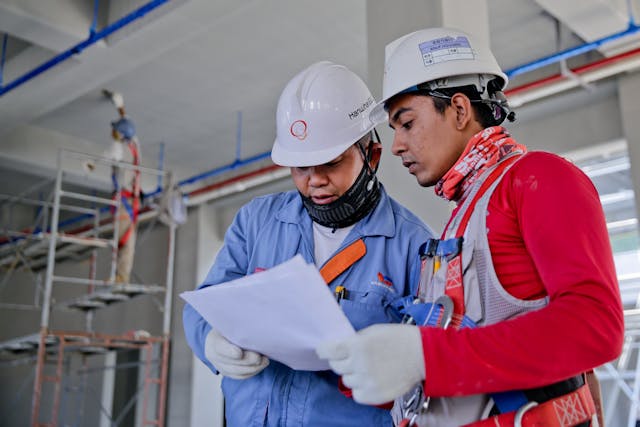Corporate and business tax outlined in the Spring budget 2024
Rates from 1 April 2024
Corporation tax rates and thresholds remain at the levels used in the year to 31 March 2024 as follows:
| Financial year to 31 March 2025 |
| Main rate |
25% |
| Small profits rate |
19% |
| Lower threshold |
£50,000 |
| Upper threshold |
£250,000 |
| Marginal relief fraction |
3/200 |
| Effective marginal relief rate |
26.5% |
Companies with profits between the lower and upper thresholds will qualify for marginal relief, which means they pay tax at 19% up to the lower threshold and at 26.5% on the remainder of the profits.
The thresholds must be equally shared between companies in a group and those controlled by the same person or persons.
It has been confirmed in the Budget that the same rates and thresholds will also apply in the year to 31 March 2026.
Research & Development (R&D) reliefs
For company accounting periods commencing on or after 1 April 2024, a new R&D scheme will come into effect, merging the current R&D Expenditure Credit (RDEC) scheme (for larger companies) with the Small and Medium Enterprise (SME) scheme. There will also be a second new R&D scheme for ‘R&D intensive SMEs’ along with other amendments as part of a government campaign to tackle fraud and abuse of the scheme.
These are significant changes and come on top of a raft of changes already seen in 2023.
Any company claiming (or considering claiming) R&D reliefs will need enhanced support to adopt the new rules and framework and make successful claims. Please do get in touch if we can assist you with this.
Annual Tax on Enveloped Dwellings (ATED)
Companies and some other entities may need to file ATED returns or pay ATED if they hold residential property. The rates of ATED will increase from 1 April 2024 so please contact us if you require any support with this.
BUSINESS TAX
Tax relief for expenditure on plant and machinery
By way of a £1million Annual Investment Allowance (AIA) and, for companies only, unlimited ‘full expensing’, your business is likely to be able to claim 100% tax relief on qualifying equipment purchases.
Conditions may apply and, in some cases, the rate of tax relief in the year of purchase can be 50% or less. In particular, some connected or group businesses need to share their £1million AIA limit between them and this is something that HMRC are currently focusing on so please do talk to us if you have any concerns.
Motor vehicles
While vans and commercial vehicles will often qualify for 100% tax relief when purchased, the rate of tax relief for a car will be less, unless it is both brand-new and electric. The cost of buying other cars is tax relieved by way of an 18% or 6% annual writing down allowance, based on whether the car has carbon dioxide emissions of up to or more than 50g/km respectively.
HMRC had planned to update their guidance so that double-cab pick-ups with a payload of 1 tonne or more were reclassified from commercial goods vehicles to cars from 1 July 2024. This would have significantly hindered the tax reliefs available. However, in February they backtracked and committed to retaining the commercial vehicle tax treatment. Although it was not part of the Budget speech, legislation will soon follow to cement the commercial vehicle approach. This applies for both capital allowances and benefit-in-kind purposes (above).
Making Tax Digital (MTD)
Under the government’s MTD initiative, businesses will keep digital records and send a quarterly summary of their business income and expenses to HMRC using MTD-compatible software. These requirements will be phased in from April 2026, starting with income tax paying sole traders and property landlords with gross income over £50,000.
HMRC is re-launching its optional beta testing, with eligible businesses able to opt-in from April 2024. Please talk to us if you’d like to know more.
Using the cash basis to compute business profits
As first announced at last year’s Autumn Statement, it should be remembered that most unincorporated businesses will default onto the ‘cash basis’ of calculating taxable profits for the 2024/25 tax year and onwards. As a simplification measure for some, it will mean that your annual profits are calculated based on when you receive payments from customers and make payments to suppliers. Adjustments for stock and amounts owing by or to you will not be possible.
Some small businesses are already using the cash basis voluntarily and won’t be affected by the change.
It is possible to ‘opt-out’ of the cash basis and instead use traditional ‘accruals’ accounts (with adjustments for stock etc.) for tax purposes. The decision will affect the timing of your tax liabilities and will ultimately be based on your personal circumstances. Please talk to us for more information and to plan the approach for your business.
Tax relief for training costs
Alongside the Budget, HMRC has published updated guidance on tax deductions available to sole traders and self-employed individuals. Amid the AI revolution, the guidance clarifies that tax relief can be claimed on training costs relating to updating existing skills, maintaining pace with technological advancements, or changes in industry practices.










